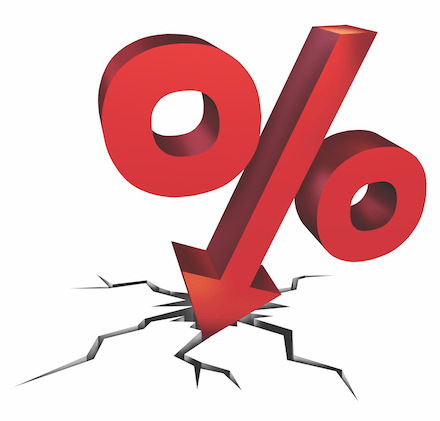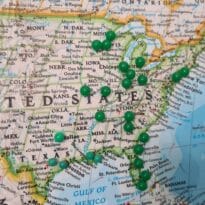The UK economy shrank by a record 20.4% in April as the country spent its first full month in lockdown, but the financial markets appeared seemingly unfazed as investors had priced in the sharp drop.
The GDP figures, published by The Office for National Statistics, showed the contraction affected almost all industries, with services, production, manufacturing and construction suffering record falls, fuelled by the closure of non-essential shops, travel, pubs, restaurants, construction and hospitality.
While the steep drop was significantly greater than the decline recorded during the economic crisis of 2008 to 2009, markets were braced for a difficult month, with repeated warnings of what to expect.
The FTSE 100 rose on the day of the announcement – Friday 12 June – with banks, insurers and airline stocks all making gains.
Investment experts have also predicted April to be the hardest-hit month, as the government began to ease some of its measures in May and June, and said the focus must be on how the UK stages its comeback over the coming months.
Ben Kumar, senior investment strategist, Seven Investment Management, said: “Savers should not let GDP contraction figures scare them. The numbers seen are the first full month of maximum lockdown and while a 20% contraction is definitely not a positive, it is not out of line with expectations.
“Investors should focus their attention on the impact of the dance – the gradual easing strategy necessary to contain coronavirus but get the world back to something approaching normal. The next steps are key. How are UK companies and consumers going to recover? Will the opening on non-essential shops be the boost the economy needs? What happened in April is far less important than what will happen over the next six months.
“Investors need to ignore these headline figures and make sure they stay calm and stay the course. Investors should not abandon long-term investment plans due to short-term news.”
Derrick Dunne, CEO, Beaufort Investment, echoed the sentiment, believing the focus will now be upon how the economy recovers.
Dunne commented: “Although the GDP fall is unprecedented, it is no surprise given this is when the economy went into lockdown. The stock market is not reacting aversely to historic information.
“Now, it is reacting more to how we come out of this. The government has provided a good deal of support thus far and will likely have to think carefully about how it deals with each sector in the coming months.”
Richard Pearson, director, EQi, said that the “chink of light” in today’s figures are that they are a “snapshot of a crisis that is already changing” from the picture a month ago.
Pearson said: “People are returning to work, shops are opening, many construction sites are buzzing, and some optimistic folk are even booking their summer holidays. There is a cautious desire to get back to normal, and the markets are tentatively responding to this.
“For retail investors, while it doesn’t necessarily mean the worse is over, it does mean they can now see which sectors were hardest hit and where there is potential for future growth as consumers start spending again.”



































